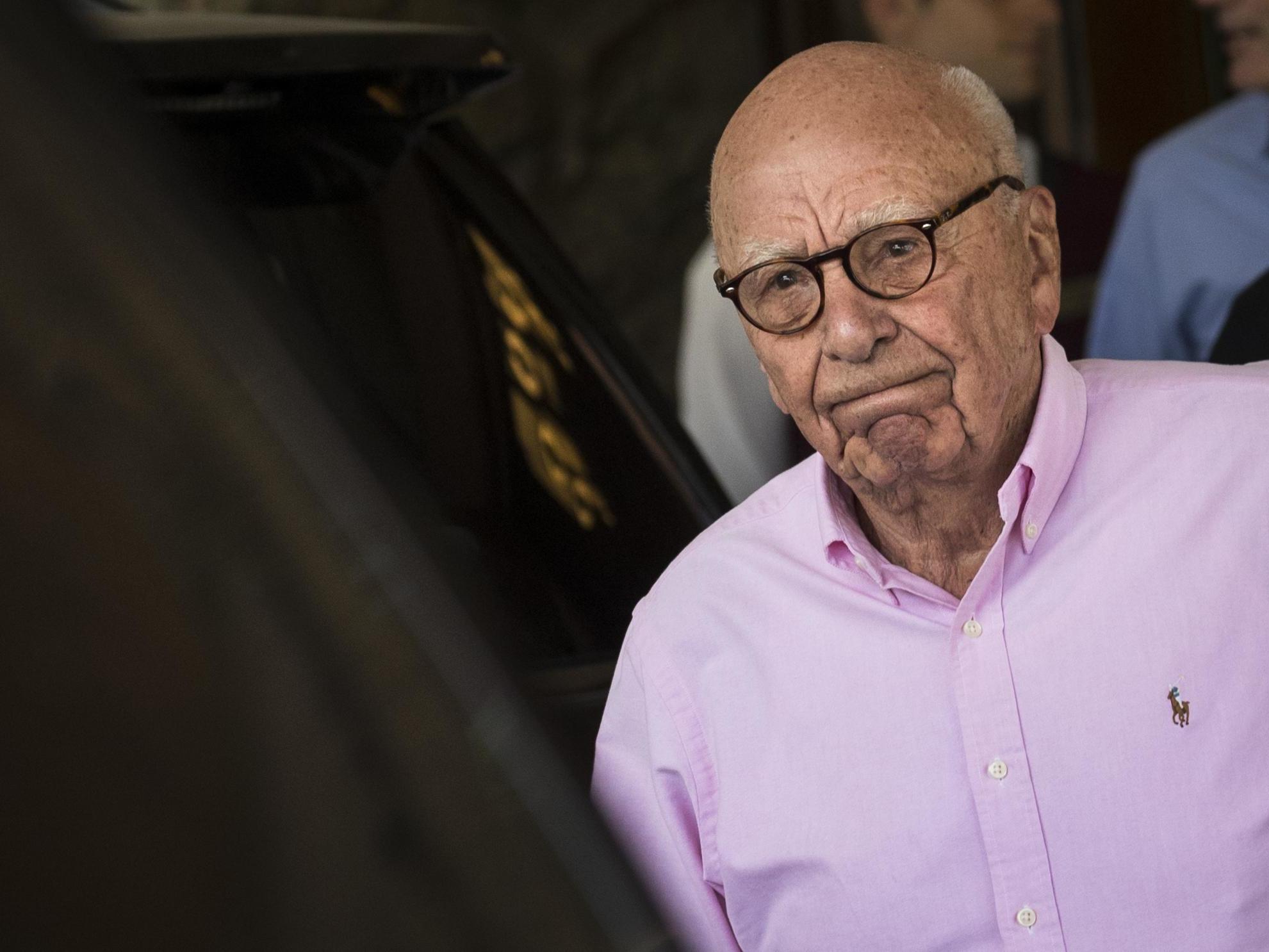The problem with business dynasties is that the kids aren’t usually as good as the parents
And the TV show Succession, based on Murdoch, is giving us a glimpse into the real-life world of unfolding high-stakes drama, writes Chris Blackhurst


A recurring high-stakes business theme at present is families and their ability to get on, and the safeguarding of fortunes by future generations.
Try as they might, even the sharpest commercial brains cannot deny the inevitable. One day, like it or not, they will have to consider what happens next. Three legal dramas involving money-making geniuses and their not-so genius relations have coincided.
There is the unfolding battle involving the Barclay twins and their children, culminating in the extraordinary footage of one grandson planting a bug in the conservatory of the Barclay-owned Ritz hotel to secretly record the conversations of one side of the family. Then it transpires the four billionaire Hinduja brothers are embroiled in litigation, of three against one, over the claim they once agreed that their assets belonged to all of them. Meanwhile, a UK court has declared Pramod, younger brother of steel tycoon Lakshmi Mittal, to be bankrupt.
While this has been going on, Succession, the fictional TV series that is clearly, if loosely, based on Rupert Murdoch, has again been airing. Then, this week, came the first of a three-part real-life documentary on the Murdoch dynasty.
Against this backdrop, it’s impossible not to be reminded of the old Lancashire aphorism: clogs to clogs in three generations. Or to put the observation another way: it takes one generation to start a business, the next to build it, and the third to spend it. What should alarm anyone who has created a business and still owns and runs it, is just how often the proverb comes true.
Typically, what transpires is this. The founder is intensely driven, hungry for financial success. Their children lack their ambition or expertise. To compound the gap, they are cosseted, brought up amid privilege and wealth. Nothing wrong with that, it’s natural. They might have the DNA – but they’re not the same.
Take the saga involving the late Sir John Moores, inventor of the Littlewoods football pools, and his children. Sir John grew up, one of several siblings, in a room above a pub. He went on to have the idea of a competition based on the Saturday matches. He followed that with a mail order and retail chain, amassing a substantial fortune.
When it came to his own children, they were sent to the smartest schools, Eton for the boys, Cheltenham Ladies for the girls. There, they developed interests that lay outside the rather crude pursuit of profit, in the arts, farming, sport and charities.
In the Godfather movies, Al Pacino plays Michael, the son, who is more horribly calculating than the father, played by Marlon Brando. But that really is rare
Rather like Logan Roy, the fearsome patriarch in Succession or, you suspect, Murdoch himself, Sir John assessed each of them and they were found wanting. So external managers were brought in to carry on running the Littlewoods empire. Then some elements in the family bizarrely thought the executives were exceeding themselves, and the Moores were in danger of being marginalised. It was still their group, still their inheritance after all. Rows and falling outs ensued, including the hiring of private detectives to gather material to support the various claims and counterclaims.
Not surprisingly, Littlewoods’ star faded. Its sinking performance was not helped by the advent of online betting, the National Lottery and scratch cards, which all supplanted the by contrast tiresome filling out of coupons to predict football results, and the rise of internet shopping. Ironically, a chunk of the operation was sold to the very same Barclay brothers who are now locked in such bitter hostilities of their own.
It’s hard for any mogul to know what to do. Any parent’s instinct is to want the best for their children. But that may not be good enough – and may even be damaging where developing a commercial brain is concerned. You wish the famous name to be preserved, for the family to retain ownership, but they’re not as able business-wise. Unfortunately, fact is not so kind. In the Godfather movies, Al Pacino plays Michael, the son, who is more horribly calculating than the father, played by Marlon Brando. But that really is rare: in reality, only around 10 to 15 per cent of family firms survive beyond three generations.
Watching the genuine Murdoch siblings, as opposed to the sons and daughter of Logan Roy, it’s difficult not to escape the conclusion that Rupert has been pursuing a forlorn quest. There is only one Rupert Murdoch. Just as he took his father’s legacy of a single newspaper and grew a vast global concern of numerous titles and brands across different types of media, so is there little prospect of his own children having the capacity to emulate him. Between them and their grandfather he stands unique. Against the rest of the industry, too.
To pretend otherwise, to attempt to hand over the group and expect them to succeed is foolhardy. Murdoch should long ago have realised that was not going to occur and paved the way for a plan that did not involve his children taking charge. Instead he’s soldiered on, and these past couple of decades the Murdoch story has been dominated by talk of succession, of heirs jockeying for position, of one seemingly being favoured over the others. We’ve only seen the first of the three-parts but that already seems to be the abiding message.
It’s a tough pill to swallow, but as it happens, at present we’re witnessing graphic evidence aplenty.
Join our commenting forum
Join thought-provoking conversations, follow other Independent readers and see their replies
Comments